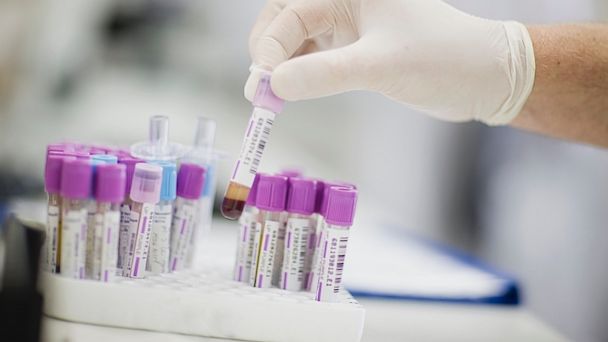Online Medical Journals Accept Fake Study: Could the Public Be Hurt?
A fake study that was accepted at dozens of medical journals for a fee has experts worried that lax oversight of published studies could affect the health of patients searching for medical answers online.
The fake paper was written by John Bohannon, a science journalist who received his doctorate in molecular biology at the University of Oxford. Bohannon submitted the paper to 302 open-access medical journals as an experiment over 10 months.
The results of Bohannon's experiment were published in Science, a peer-reviewed general science publication that charges subscription fees.
"I chose, for the start of this, to [target] open-access publishers who charge fees for scientists to publish," Bohannon told ABCNews.com. "Acceptances kept on coming more frequently than rejections. … I thought it would be more like 10 percent."
Surgeon Accused of Fake Surgeries
Bohannon's paper, which had bad data and lacked rigorous testing, was accepted at more than half of the journals where it was submitted.
Unlike subscription-based journals or fee-based journals, open-access journals are free of charge, free of most copyright and licensing restrictions and often publish their articles online without a pay wall.
While some online journals have a proven track record for properly vetting studies, Bohannon found that some were merely imitating more established journals by taking on the same name or a similar online format. Some journals that Bohannon thought were reputable ended up accepting the paper.
"This sting operation," Bohannon said in Science, shows "the contours of an emerging Wild West in academic publishing."
Bohannon found that many journals that appeared to be based in the U.S. were actually run out of foreign countries. Approximately one-third of the journals were run from India, making that country the largest base for open-access journals.
With more patients taking to the Internet to read about their diseases, experts worry that patients searching for a cure online might come across studies that have not been properly vetted and get incorrect information about their health.
Dr. Paul Root Wolpe, director of the Emory Center for Ethics in Atlanta, said patients often come in to their doctor's office armed with data found online and that more bad data means that patients could be swayed into requesting unproven treatments.
"Speak to clinicians, and they'll tell you: [Patients] give them the diagnosis and the treatment before they've been examined," said Wolpe.
"Equally problematic is self-treatment," he said. Look up diabetes, "and you can find 20 different websites that all contradict each other."
Bohannon said there is not an easy way for a person without a scientific background to discern between a properly vetted and peer-reviewed study and one that was merely rubber stamped. He said he hoped that the scientific community could establish some kind of independent monitoring agency that could test journals in a similar manner to his experiment to make sure they were doing their due diligence.
"Hopefully, people will jump on this problem," said Bohannon, who thinks patients should vet studies with an expert on their own before believing them. "Until then, the main thing is, like, you have to ask the doctor. If you need scientific advice you need to talk to a scientist."
Other experts stress that that putting well-vetted studies from established journals online could help many more patients and help combat the poorly researched articles.
Paul Wicks, head of research and development at a health-data-sharing website, Patients Like Me, said that the medical community is now focusing on more collaborative treatment with patients, and it can be helpful for patients to be reading medical literature so they can bring up new information or treatment with their doctor.
"[We're] moving toward patient-centered care and shared decision making," said Wicks. " The doctor is not always going to say, 'I think we should do this. … It's option a, b, c, and here are the pros and cons.'"
Wicks said there are many open-access journals that are doing their due diligence when releasing data and that some researchers have started to pay an extra fee so their vetted and peer-reviewed studies that are published in subscription journals are able to appear to the public online.
Wicks said the Internet could become a major help for patients if more vetted and established journals were putting their articles online.
"When you block of sources of credible reliable information, patients who want information, they'll flow like water around a rock," said Wicks. "They'll turn to online sources that are not as reputable."
Wicks recommended that patients who find interesting data online should try and ask questions of reputable experts in that field by email or Twitter and take findings with a grain of salt. In spite of the pitfalls, Wicks said, the Internet is a vital source of information for patients.
"I think it's important to say that information landscape has never been better for patients," said Wicks.
